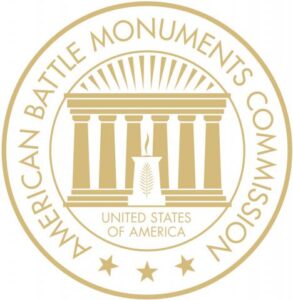While the “Christmas Truce” of 1914 has achieved legendary status in the history of World War I, there has been little coverage of similar events involving American troops. When America entered World War I, years of massive casualties discouraged any brotherly feeling between the opposing armies, and senior officers actively discouraged any repeat of the events of 1914. In World War II, there were few chances for such events, as American troops were in close contact with German forces only in relatively small numbers in North Africa and Italy prior to the 1944 D-Day landings. Any large scale truce for Christmas 1944 was impossible as just nine days prior to Christmas, the Germans launched their largest counteroffensive of the war in the west, resulting in the Battle of the Bulge and heavy fighting throughout the holiday.
Yet while there is no mention of any “Christmas truce” in the official records, we do have a personal account of a much smaller truce during the height of the fighting in the Battle of the Bulge. This is the story of Fritz Vincken, a young German boy at the time of the battle. Fritz, then 12-years-old, had moved with his mother to a small cottage in the Huertgen forest after their hometown of Aachen was partially destroyed in an earlier American offensive. The area had stayed quiet until nine days before Christmas, when the German Ardennes Offensive had crashed through the area. According to Fritz, “we heard the incessant booming of field guns; planes soared continuously overhead; at night searchlights stabbed through the darkness.”
On Christmas Eve, 1944, Fritz and his mother answered a knock at the door — three American soldiers, one badly wounded, were standing there. While the Vinckens did not speak English nor the Americans German, they were able to communicate to a limited extent in French. Fritz’s mother invited the Americans inside and attempted to make them comfortable. Fritz remembered:
“We learned that the stocky, dark-haired fellow was Jim; his friend, tall and slender, was Robin. Harry, the wounded one, was now sleeping on my bed, his face as white as the snow outside. They’d lost their battalion and had wandered in the forest for three days, looking for the Americans, and hiding from the Germans. They hadn’t shaved, but still, without their heavy coats, they looked merely like big boys. And that was the way Mother began to treat them.”
Fritz’s mother made a meal of potatoes and a rooster, previously being saved for a reunion with Fritz’s father. As they cooked, there was a second knock on the door:
“Expecting to find more lost Americans, I opened the door without hesitation. There stood four soldiers, wearing uniforms quite familiar to me after five years of war. They were Wehrmacht – Germans! I was paralyzed with fear. Although still a child, I knew the harsh law: sheltering enemy soldiers constituted high treason. We could all be shot!”
The corporal leading the German patrol told Fritz’s mother, “we have lost our regiment and would like to wait for daylight…can we rest here?”
“Of course,” she replied, “you can also have a fine, warm meal and eat ‘til the pot is empty. But, we have three other guests, whom you may not consider friends. This is Christmas Eve, and there will be no shooting here.”
The corporal demanded, “Who is inside? Amerikaner?”
Fritz’s mother replied, “Listen. You could be my sons, and so could they in there. A boy with a gunshot wound, fighting for his life, and his two friends, lost like you and just as hungry and exhausted as you are. This one night, this Christmas night, let us forget about killing.”
The Germans stacked their arms by the door, and after a quick conversation in French the startled Americans also turned over their weapons to Fritz’s mother. The entire mixed group, somewhat tensely, sat down and shared dinner. According to Fritz:
“Relaxation was now beginning to replace suspicion. Even to me, all the soldiers looked very young as we sat there together. Heinz and Willi, both from Cologne, were 16. There German corporal, at 23, was the oldest of them all. From his food bag he drew out a bottle of red wine, and Heinz managed to find a loaf of rye bread. Mother cut that in small pieces to be served with the dinner; half the wine, however, she put away, ‘for the wounded boy.’ Then Mother said grace. I noticed that there were tears in her eyes as she said the old, familiar words, ‘Komm, Herr Jesus. Be our guest.’ And as I looked around the table, I saw tears, too, in the eyes of the battle-weary soldiers, boys again, some from America, some from Germany, all far from home. Just before midnight, Mother went to the doorstep and asked us to join her to look up at the Star of Bethlehem. We all stood beside her except Harry, who was sleeping. For all of us during the moment of silence, looking at the brightest star in the heavens, the war was a distant, almost-forgotten thing.”
The truce held through the morning, Christmas Day, when the two sets of soldiers shook hands and departed, each headed back to their own army.(1)
It is likely that there were other such small scale truces, or at least tacit agreements between local American and German units to refrain from attacks and firing on Christmas Eve and Christmas Day, perhaps in Italy in 1943 or in quieter parts of the line in 1944, but this is the only documented case currently known.
__________
(1) This is a condensed version of a story first related in Vincken, Fritz, “Truce in the Forest,” Readers Digest, January 1973, pp 111-114.
 An official website of the United States government. Here's how you know.
An official website of the United States government. Here's how you know. 